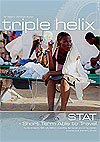On 1 December 2010, the End of Life Assistance (Scotland) Bill, which would have legalised both euthanasia and assisted suicide, was heavily defeated in the Scottish Parliament by 85 votes to 16 with 2 abstentions. (1) The final vote was the result of near unanimous opposition from Scottish healthcare professionals and faith groups including the Christian church. It also reflected a strong resistance to the Bill from the umbrella organisation Care Not Killing (Scotland) which campaigned against any change in the law.
The reasons for this opposition were manifold. The main ones were the danger the Bill represented about protecting the most vulnerable people in society, who may have begun to see themselves as a burden; and the manner in which it would have undermined the relationship of trust between the patient and the physician. But the opposition was also successful in confronting the human dignity argument from those in favour of euthanasia and assisted suicide, and their often used 'dignity in dying' slogan. Indeed, it was repeatedly made clear, inside and outside Parliament, that the concept of human dignity could not be reduced to a private matter that can vary between persons and to different degrees. (2) (3) Instead, human dignity is inherent – it is an irreducible, immeasurable and necessary quality that belongs equally to all members of humanity and can never be lost. Thus, any attempt to end the life of a person through euthanasia and assisted suicide would be a denial and violation of this kind of inherent dignity which is the basis of all civilised societies. It would also mean that there is such a thing as a life unworthy of life.
This realisation by MSPs that ending the life of an individual had profound consequences for relatives, friends, neighbours and the whole of society was one of the reasons for their opposition. As John Donne reminds us, no man or woman is an island. A civilised society is an interdependent one.
Every person's signal of hope or despair has a profound impact on the lives of others.
The Scottish parliamentarians were very thorough in gathering evidence about the different arguments. In opposing the Bill by 83%, the MSPs demonstrated that when time, effort and wisdom are invested into the careful examination of all the different issues, the only possible outcome becomes a strong opposition to euthanasia and assisted suicide.































